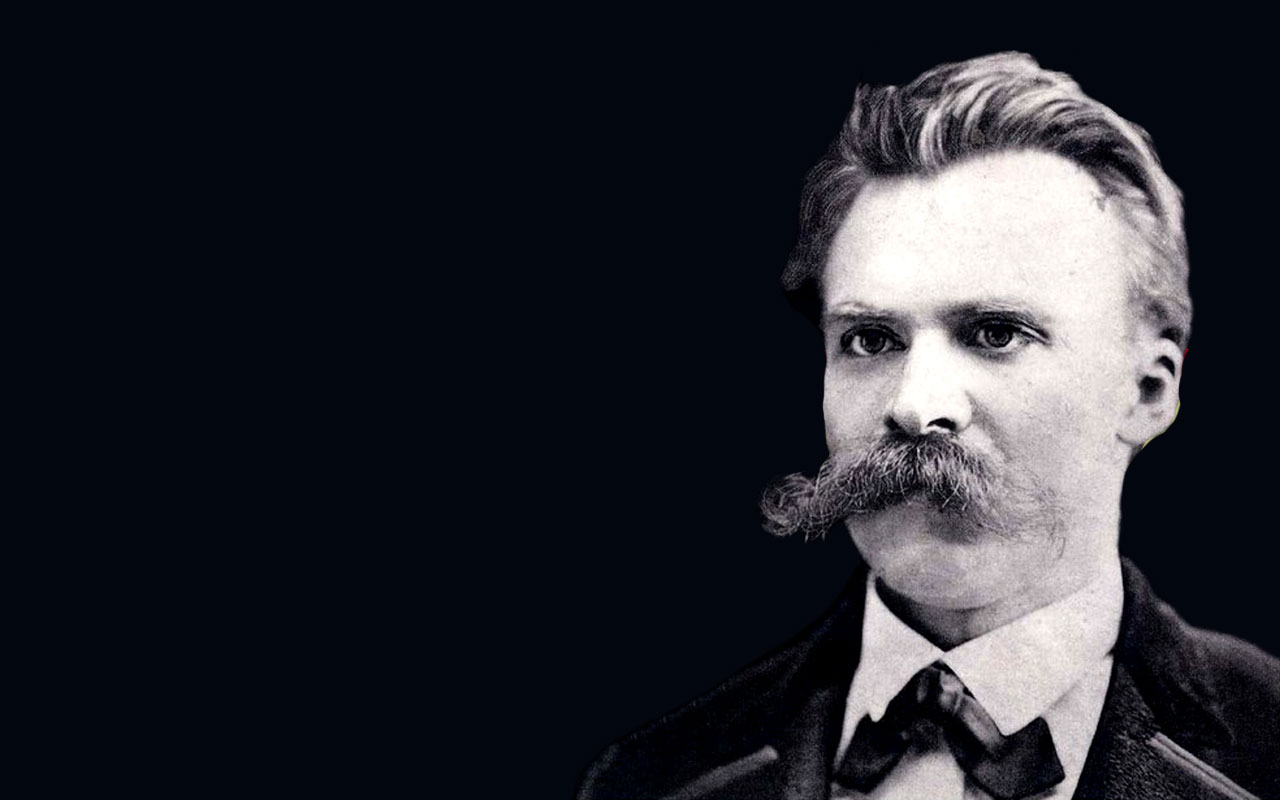The widely read but often misunderstood philosopher: Who is Nietzsche?
Friedrich Wilhelm Nietzsche (15 October 1844 – 25 August 1900) was a German philosopher, prose poet, cultural critic, philologist, and composer whose work has exerted a profound influence on contemporary philosophy.

He was born on October 15, 1844, in Germany.
Nietzsche had a generally happy, fulfilling, and religious childhood; In his writings, he did not make the slightest rebellion against his religious upbringing. However, when he entered university to study philology and theology in 1864, he had given up believing in the existence of God. In 1869, 24-year-old Nietzsche was offered a faculty position at the University of Basel's chair of classical philology. Meanwhile, his serious illness started to show itself. Nietzsche, who could not even eat because of his endless headaches, would never get up from his bed in a dark room for days.
He began his career as a classical philologist before turning to philosophy. He became the youngest person ever to hold the Chair of Classical Philology at the University of Basel in 1869 at the age of 24. Nietzsche resigned in 1879 due to health problems that plagued him most of his life; he completed much of his core writing in the following decade. In 1889, at age 44, he suffered a collapse and afterward a complete loss of his mental faculties, with paralysis and probably vascular dementia. He lived his remaining years in the care of his mother until her death in 1897 and then with his sister Elisabeth Förster-Nietzsche. Nietzsche died in 1900, after experiencing pneumonia and multiple strokes.
His first work, The Birth of Tragedy, was published in 1872. The book consists of 25 chapters. The first 15 chapters are devoted to examining the origin of Greek tragedy. In the rest of his work, Nietzsche says that in order to understand contemporary culture, it is necessary to use the Greek model. He also expresses his views on music and opera. When the book was published, it received heavy criticism from academic circles for being too ambitious and naive.
With his health deteriorating, the philosopher resigned from his post at the university in 1879 and began his ten-year travels. For most of his life, Nietzsche had to deal with severe illnesses, including severe migraines that left him unable to get out of bed in a dark room. Although he suffered from headaches as a child, his illness and insanity were most likely the result of syphilis. However, Nietzsche saw his illness as something that inspired him to write and think, believing that great works feed on suffering. Indeed, he succeeded in writing his most important works in his most painful times, both physically and mentally. Works such as Thus Spoke Zarathustra, Beyond Good and Evil, and Genealogy of Morals were written between 1883 and 1887.
The lifelong love of the great German poet Rilke and the beautiful, intelligent Lou-Andreas Salomé, whom Freud so openly admired, deeply impressed Nietzsche, whom he met in May 1882, during their friendship that lasted until November, especially with his conversations about religion. He was blown away by his impregnable spirit. A few days before he proposed to Salomé, his friend, writer Paul Rée, also proposed. Salomé told both of them that she was not interested in marriage, but that the three of them could live together in the same house as an intellectual union. This did not happen, due to Nietzsche's sister's dislike for Salomé. This one-sided love story, which tormented and inspired Nietzsche immensely, was the subject of Irvin Yalom's "When Nietzsche Wept" and Lance Olsen's Nietzsche's Kisses.
“God is dead” is Nietzsche's most famous saying. Nietzsche expressed this idea for the first time in 1872 in his work The Gay Science. The death of God is the extinction of people's faith in eternal standards. Otherwise, Nietzsche did not kill God. He sees this situation as both liberating and a harbinger of disasters. It is catastrophic because the disappearance of moral standards means that humanity is not bound by any limitations on its actions. It is liberating because humanity can now create new moral values for itself.
Thus Spoke Zarathustra, which he completed at the end of 1885, is a work consisting entirely of fictional characters. Zoroaster is a prophet who lived in Iran in the 6th century BC. According to Nietzsche, it is seen that all traditional morality is based on a great mistake made by Zarathustra for the first time. Zarathustra is the one who created the idea that the conflict between good and evil is part of the transcendent cosmic order. Since he made this mistake, he is probably the first person to realize this mistake. Since Zoroastrians sees righteousness as the highest virtue, he will be the thinker most inclined to admit that it is wrong to project morality into the metaphysical realm. With this confession, Zarathustra destroys all conventionally known morality and ultimately becomes the first vice.
Reading it for yourself is the best way to get to know Nietzsche. His unconventional style and poetic approach to philosophy can be discouraging and confusing for the reader encountering this philosopher for the first time, especially if he is accustomed to approaching the subject in a more traditional, linear, and analytical way.
